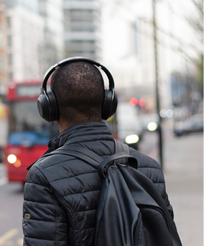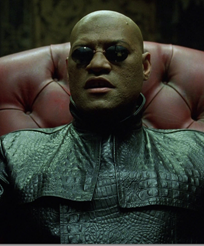Spoiler Alert: there are a few spoilers here.
If a few months ago you had told me that one of the first great pieces of art to reckon with the #MeToo era would involve Leslie Mann sticking a tube up John Cena’s ass so he could butt-chug a 40, I would’ve looked at you sideways (then laughed; it’s hilarious). But such is the case with Blockers, Kay Cannon’s raucous directorial debut about a trio of high school senior girls, Julie (Kathryn Newton), Kayla (Geraldine Viswanathan) and Sam (Gideon Adlon), who make a pact to lose their virginities on prom night (#sexpact2018)—and the trio of nervous parents, Lisa (Leslie Mann), Mitchell (John Cena) and Hunter (Ike Barinholtz) who set out to stop them. It’s easily the best American Pie since American Pie, as evolved for and attuned to our current moment as it is unapologetically raunchy and riotously funny.
That comparison, while apt, does not do the film justice, because Blockers is just as, if not more, concerned with its concerned parents as it is with their teenage daughters. Lisa raised Julie as a single mom, and is worried she’ll make the same mistakes that she did, following her boyfriend from Chicago to UCLA. Mitchell is ostensibly a stay-at-home dad, who passionately coached Kayla through her years as a student athlete. Hunter is the bombastic divorcée, who cheated on his wife with the babysitter and has been trying to reconnect with Sam ever since. When the three snoop on their daughters’ group text after prom pictures, their decision to “cockblock” them arrives less out of any conservative ideas towards sex—it’s understood that they are all progressive parents, the kind who “attend all the marches”—and more out of a sweetly selfish desire to hold onto their kids for as long as they can, before they leave for college and officially enter adulthood. In this way, Blockers plucks on the same heartstrings as Lady Bird or Boyhood, two coming-of-age movies that also sublimated the occasional flaws of parents as the natural byproduct of simply not wanting to let go.
Yet for all its earnestness, the film never forgets what it is: a teenage sex romp on the scale of Sex Drive, Eurotrip, 21 & Over and other movies that have up until now focused almost exclusively on the adolescent male’s desire to get laid, with (often) funnier gross-out gags and set-pieces. The three girls have different reasons for wanting to have sex on prom night: Julie, because she has as serious boyfriend; Kayla, because she just wants to have the experience; and Sam, because Julie and Kayla are doing it. They are as cavalier about their intentions as their male counterparts were in American Pie; it’s easy to think of Julie as a Kevin (who had a serious girlfriend in Vicky, played by Tara Reid) and Kayla as a less toxic Stiffler-type, frank about her desire to get fucked up and have sex. But where other movies have stigmatized female teenage sexuality—or otherwise treated it as extraordinary or idiosyncratic—Blockers normalizes it, makes it relatively unremarkable.
And where other pieces of quote-unquote “progressive” art have made its progressiveness the very subject, Blockers’ value system always takes a backseat to the comedy. Lisa is a single mom; Mitchell is in an interracial marriage; Sam, it turns out, is a lesbian, and the product of divorce. But these qualities, while justifiably explored, never threaten to overtake the central story—of three girls trying to get laid on prom night, and three parents running around trying to stop them. Blockers feels almost radical, in that it makes its progressivism a latent part of its characters’ everyday existence, rather than the crux of an entire film. It imagines a world where diversity and inclusivity are not even special enough to be remarked upon; the kind of high school parodied in 21 Jump Street—where jocks and bullying are lame, and cultural sensitivity and environmentalism is cool—has, less than ten years later, become a sincere reality.
Critically, the movie deals with issues of consent with a similarly natural authenticity. Julie’s boyfriend, Austin (Graham Phillips), goes to great lengths to make sure she’s comfortable and ready (and also brings tons of condoms). Sam’s date, Chad (Jimmy Bellinger), explicitly and continually asks whether she wants to go through with it (she doesn’t). When Kayla ultimately decides she’s not ready to have sex, her date, Connor (Miles Robbins)—who cooks weed into intricate French pastries—immediately backs off and respects her space; he even suggests they do some “light journaling,” before Kayla asks him to go down on her. (The connoisseurial softboy, whip-smart and sensitive but really into drugs, is officially my favorite new teen trope.)
There has been somewhat of a crisis surrounding boys in America, in the wake of #MeToo and a recent spate of school shootings—particularly with regards to how to raise them to have healthy relationships with women. Blockers is a movie about girls. But it’s equally vital in its portrayal of boys, who, unlike many chauvinistic males who occupy teenage sex comedies, make tacit feminism and enthusiastic consent cool.













